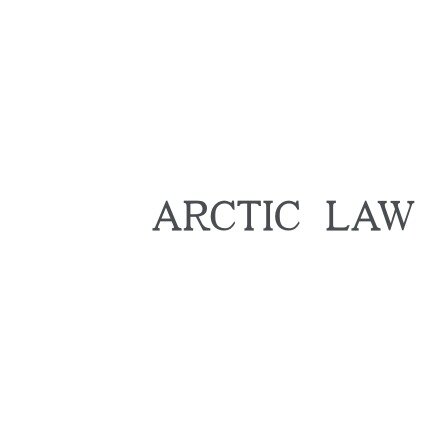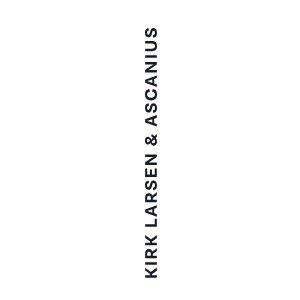Best Renewable & Alternative Energy Lawyers in Greenland
Share your needs with us, get contacted by law firms.
Free. Takes 2 min.
Or refine your search by selecting a city:
List of the best lawyers in Greenland
About Renewable & Alternative Energy Law in Greenland
Greenland is globally recognized for its vast natural resources, including abundant potential for renewable and alternative energy production. As the largest island in the world, Greenland's unique environmental and geographic conditions present both opportunities and challenges for sustainable energy development. Hydropower currently serves as the primary source of renewable energy for local communities, particularly as a means of replacing imported fossil fuels such as oil. Additionally, wind, solar, and potential geothermal resources are being explored due to the growing focus on reducing carbon emissions and fostering environmentally friendly energy solutions. Greenlandic law in this area must balance economic growth, environmental protection, and international obligations, including its special relationship with Denmark. For developers, investors, landowners, and local communities, understanding the legal framework governing renewable and alternative energy is essential for successful projects and compliance with local regulations.
Why You May Need a Lawyer
There are several situations where consulting a legal professional in the field of renewable and alternative energy can be crucial in Greenland. Some of the most common scenarios include:
- Negotiating energy development agreements with officials, landowners, and third parties.
- Navigating the licensing and permit application process for renewable energy projects such as wind farms or hydropower stations.
- Understanding and complying with environmental impact assessments and local environmental protection requirements.
- Advising on land use, property rights, and access to resources.
- Securing government incentives or funding for renewable energy initiatives.
- Resolving disputes between project stakeholders, including developers and local communities.
- Adhering to international treaties or agreements that impact energy policy in Greenland.
Because Greenland's legal system is influenced by both local governance and its relationship with Denmark, legal professionals can help guide both individuals and organizations through complex regulations and ensure projects are compliant and sustainable.
Local Laws Overview
Greenland's legal framework for renewable and alternative energy reflects its status as a self-governing territory within the Kingdom of Denmark. Key aspects include:
- Self-Governance Act: The Act on Self-Government grants Greenland authority over natural resources, including energy policy and regulation.
- Hydropower Legislation: Laws specifically address hydropower development, setting requirements for permits, environmental reviews, and public consultation.
- Environmental Protection: Stringent environmental protection statutes require assessments and mitigation plans for energy projects to safeguard local ecosystems.
- Zoning and Land Use: Local regulations control where and how alternative energy infrastructure such as wind turbines or solar installations may be built. Land rights and obtaining site access can be complex, especially on public or indigenous lands.
- Foreign Investment and Ownership: There are specific procedures for foreign investors, including both application processes and compliance with Greenlandic law.
- Energy Supply and Distribution: Local municipalities often control energy distribution. Laws exist around grid connection, energy pricing, and service obligations.
- International Standards: Greenland may adopt or be influenced by Danish and international best practices, particularly in relation to environmental management and safety.
Staying updated with new legislation and amendments is important, as the energy landscape evolves rapidly to meet environmental and economic goals.
Frequently Asked Questions
What types of renewable energy projects are most common in Greenland?
Hydropower is by far the most established form of renewable energy in Greenland, with several plants in operation. There is also increasing interest in wind, solar, and potentially geothermal energy projects.
How do I obtain permission to start a renewable energy project in Greenland?
You must apply for permits and licenses through the Greenlandic government, often involving detailed environmental assessments and consultation with local communities or landowners.
What environmental regulations apply to renewable energy development?
Projects are subject to Greenland’s Environmental Protection Act, which requires comprehensive impact assessments and ongoing monitoring. Developers must propose mitigation measures to reduce environmental harm.
Are there incentives for renewable energy investment in Greenland?
There may be government grants, funding programs, or tax incentives for certain renewable energy initiatives. The availability and terms can vary, so consulting local authorities or legal experts is recommended.
Can foreign companies invest in Greenland’s renewable energy sector?
Yes, but foreign investors must comply with specific rules and procedures for investment, including reviews of project impact and legal structure.
What role do local communities and indigenous peoples play in energy projects?
Local communities and indigenous groups must often be consulted on land use and project impact. Their rights are protected under Greenlandic law and sometimes international agreements.
How are disputes around renewable energy projects resolved?
Disputes may be addressed through negotiation, mediation, or legal proceedings in Greenlandic courts. Legal assistance is advised for navigating these processes.
What are the main challenges for renewable energy development in Greenland?
Key challenges include harsh climates, remote locations, limited infrastructure, land access issues, and balancing development with environmental protection.
How does Greenland’s relationship with Denmark affect energy law?
While Greenland has autonomy in energy matters, Danish and international standards may influence regulations. Some areas, like foreign policy, remain linked to Denmark.
Do I need a Greenlandic partner for energy projects?
Not always, but partnering with local entities can help navigate regulations, secure permits, and build relationships with local stakeholders.
Additional Resources
- Greenlandic Ministry of Mineral Resources and Justice - Responsible for energy policy, permitting, and legal guidelines.
- Greenland Self-Government (Naalakkersuisut) - Central administrative body managing natural resources and energy initiatives.
- Greenland’s Environmental Protection Agency - Provides guidance on regulations and requirements for environmental impact assessments.
- Local municipalities - Involved in land use, infrastructure, and local regulation.
- University of Greenland (Ilisimatusarfik) - Offers research and publications on Greenland’s energy and environmental laws.
- Chambers of commerce and industry groups - Useful for business development and local networking.
- Legal consultants specializing in Greenlandic energy law - Essential for case-specific advice and document preparation.
Next Steps
If you are considering a renewable or alternative energy initiative in Greenland, or if you need to manage legal aspects of existing projects, it is important to:
- Research the specific regulations and permit requirements for your project type and location.
- Consult with legal professionals who have expertise in Greenlandic renewable energy law and local procedures.
- Connect with relevant government agencies or local authorities to discuss your plans and seek initial guidance.
- Engage with local communities and stakeholders early in the planning process to identify possible concerns and secure support.
- Prepare all necessary documentation, including environmental impact assessments and land use agreements, as part of your permit application.
- Seek advice on incentives or support schemes that may apply to your project.
Proper legal guidance can help avoid costly delays, ensure compliance, and support the long-term success of your energy project in Greenland.
Lawzana helps you find the best lawyers and law firms in Greenland through a curated and pre-screened list of qualified legal professionals. Our platform offers rankings and detailed profiles of attorneys and law firms, allowing you to compare based on practice areas, including Renewable & Alternative Energy, experience, and client feedback.
Each profile includes a description of the firm's areas of practice, client reviews, team members and partners, year of establishment, spoken languages, office locations, contact information, social media presence, and any published articles or resources. Most firms on our platform speak English and are experienced in both local and international legal matters.
Get a quote from top-rated law firms in Greenland — quickly, securely, and without unnecessary hassle.
Disclaimer:
The information provided on this page is for general informational purposes only and does not constitute legal advice. While we strive to ensure the accuracy and relevance of the content, legal information may change over time, and interpretations of the law can vary. You should always consult with a qualified legal professional for advice specific to your situation.
We disclaim all liability for actions taken or not taken based on the content of this page. If you believe any information is incorrect or outdated, please contact us, and we will review and update it where appropriate.
Browse renewable & alternative energy law firms by city in Greenland
Refine your search by selecting a city.











